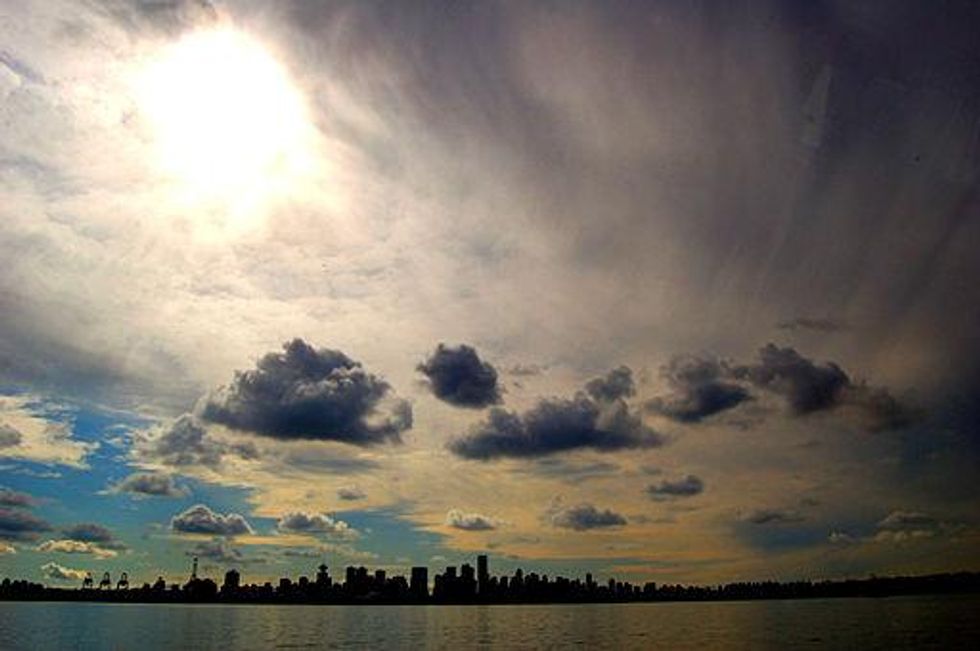Last week, Vancouver’s city council voted 9 to 2 in favor of banning the storage, handling and trans-shipment of coal at the city’s marine terminals and berths.
As Coal Investing News reported last month, Vancouver residents have recently come into conflict with Fraser Surrey Docks (FSD), which bills itself as “the largest modern, multi-purpose marine terminal” on North America’s West Coast, and Port Metro Vancouver (PMV). The issue at hand is that FSD wants to expand its existing terminal to include a Direct Transfer Coal Facility capable of shipping an initial 4 million metric tons (MT) of United States coal to Asia each year; it has already submitted a permit application to PMV. Not surprisingly, environmental groups and health authorities have expressed concerns about the plan, which they believe could damage the environment and negatively impact the health of people living in the area.
“Symbolic” coal ban
The latest development in the saga came late last Tuesday, when Vancouver’s city council voted 9 to 2 in favor of banning the storage, handling and trans-shipment of coal at the city’s marine terminals and berths. The bylaw amendment is in line with Vancouver’s Greenest City 2020 Plan, which is aimed at reducing greenhouse gas emissions and making the city’s air “the cleanest … of any major city in the world,” according to a staff report.
While the ban may sound drastic, The Province notes that it is being described as “largely symbolic” due to two factors: first, no coal facilities currently exist in the city, and second, Vancouver has no jurisdiction over PMV.
For its part, PMV has remained fairly stoic. As per The Vancouver Sun, the organization is “aware” of the ban and has said that no coal terminals have been proposed within the city’s limits. In a statement emailed to the news outlet Wednesday night, PMV also noted that it has been speaking with local health authorities, which have asked for a health impact assessment regarding the FSD expansion, and reiterated that the project is still under review, so a decision has not yet been made.
So does the ban have value?
The short answer? It depends who you ask.
Those in favor of the ban believe there is no question that it is an important step. The Province quotes Kevin Washbrook, director of Voters Taking Action on Climate Change, as saying, “[i]t may be symbolic because there’s no coal ports here right now, but the pressure to export this American coal out of every nook and cranny and port is high, so I wouldn’t be surprised if there were plans out there to do this. We’ve had municipal governments, regional governments, MLAs, MPs and health authorities all calling on the port to slow down and conduct more regionalized consultation and do the comprehensive health assessment, and they’ve so far ignored those calls.”
He ended by stating, “I think it’s appropriate for the city to use every tool it has at its disposal to protect its citizens if the port is not going to cooperate and consult with the region.
However, its opponents are significantly less impressed. Conservative MP David Wilks of Kootenay-Columbia, who flew into town specifically to speak against the ban, is one such person. Speaking at the meeting, he said that it is metallurgical coal that makes Vancouver’s environmental goals possible, commenting, “[i]f anyone in that (council chamber) can tell me where the replacement for carbon is, I’m sure we’d be willing to do it. Until you find that carbon replacement, you need metallurgical coal,” according to The Vancouver Sun.
Further, he simply does not see how the city plans to enforce the ban. He told the Cranbrook Daily Townsman, “I just don’t quite understand the logic by the City of Vancouver and the amendment that they put forward, because it’s more of a feel-good motion than anything else. I’ve always maintained from a regional perspective, you don’t create a bylaw that you can’t enforce.”
What’s next?
While the ban is certainly a component of the turmoil surrounding the FSD expansion, it appears unlikely that it will have any bearing on PMV’s decision about whether or not to issue a permit. For now, those interested in keeping tabs on the situation would do best to look out for any rumblings regarding PMV’s decision.
Securities Disclosure: I, Charlotte McLeod, hold no direct investment interest in any company mentioned in this article.
Related reading:
Coal Dust Concerns Plague Fraser Surrey Docks Expansion
